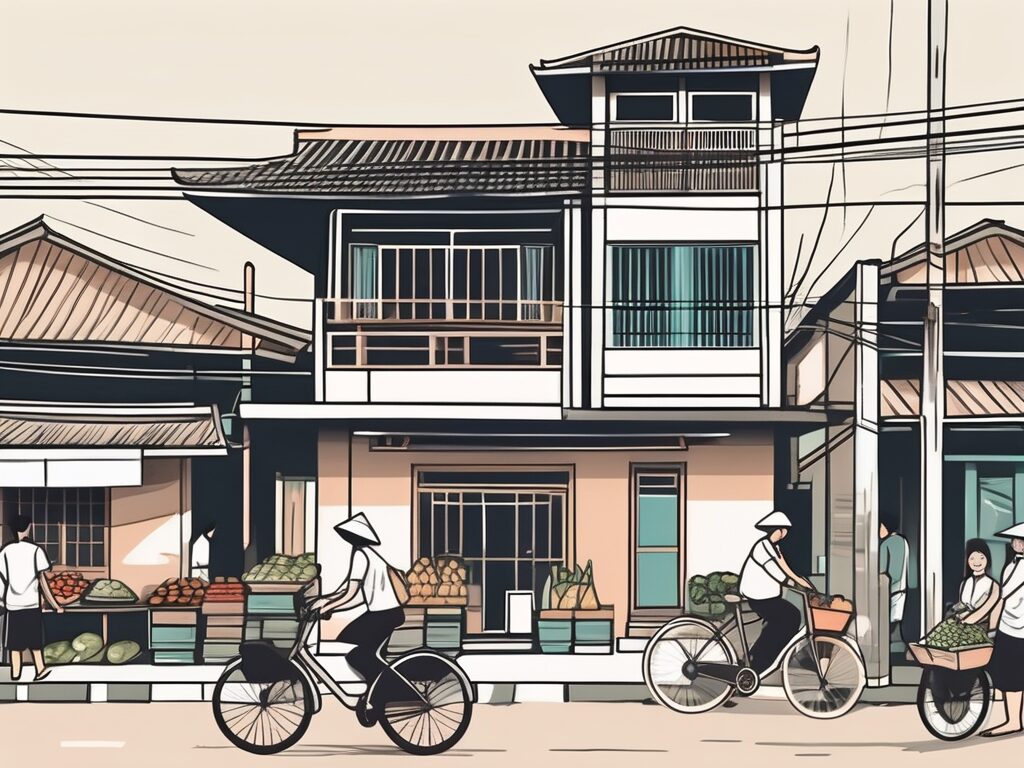Vietnam, a country known for its rich history, diverse culture, and stunning landscapes, has become an increasingly popular destination for international teachers. The allure of a lower cost of living, coupled with a vibrant lifestyle, has drawn many educators to its shores. But what exactly does it cost to live in Vietnam? In this comprehensive guide, we’ll delve into the nitty-gritty of living expenses in this Southeast Asian gem.
Accommodation Costs
One of the most significant expenses you’ll encounter in Vietnam is accommodation. However, compared to Western countries, housing in Vietnam is relatively affordable. The cost varies depending on the location, type of accommodation, and the amenities provided.
In major cities like Hanoi and Ho Chi Minh City, a one-bedroom apartment in the city centre can cost anywhere between £200 to £400 per month. If you prefer a quieter neighbourhood, a similar apartment outside the city centre can range from £100 to £200 per month. For those who fancy a more luxurious lifestyle, high-end apartments or villas can go up to £1,000 per month.
Shared Accommodation
If you’re on a tight budget or enjoy the company of others, shared accommodation is a great option. You can find a room in a shared house or apartment for as low as £50 to £100 per month. This often includes utilities, making it a cost-effective choice for those looking to save.
Utilities
Utilities such as electricity, water, and internet are generally affordable in Vietnam. For a standard apartment, expect to pay around £30 to £50 per month for these services. However, this can vary depending on usage, particularly for air conditioning, which can significantly increase electricity costs.
Food and Drink Costs
Another aspect of living costs in Vietnam is food and drink. Vietnam is famous for its delicious and affordable street food. A bowl of Pho, the country’s signature dish, can cost as little as £1. For £2 to £3, you can enjoy a full meal including a main dish, a side, and a drink.
If you prefer cooking at home, groceries are also reasonably priced. A week’s worth of groceries can cost around £15 to £20, depending on your dietary preferences. Western products are available but can be more expensive than local products.
Drinking and Nightlife
Vietnam’s nightlife is vibrant and diverse, offering everything from quiet pubs to bustling nightclubs. A pint of local beer can cost as little as £0.50 in a local pub, while cocktails in a high-end bar can range from £3 to £5. For those who enjoy a night out, it’s worth noting that these costs can add up quickly.
Transportation Costs
Getting around in Vietnam is relatively cheap and convenient. Public transportation options include buses, taxis, and the increasingly popular Grab service (similar to Uber). A one-way bus ticket costs around £0.30, while a taxi ride starts at £0.50 and increases with distance.
Many residents also opt for motorbikes, the most common mode of transportation in Vietnam. A second-hand motorbike can cost between £200 to £300, while a new one can range from £600 to £1,000. Petrol costs are also low, making motorbikes an economical choice for daily commuting.
Healthcare Costs
Healthcare in Vietnam is a mixed bag. While public healthcare is available at a low cost, it often falls short in terms of quality and efficiency. Many expats and wealthier locals prefer private healthcare, which offers better service but at a higher price.
A routine doctor’s visit can cost around £10 in a public hospital, but can go up to £50 in a private clinic. Health insurance is highly recommended, as it can cover a significant portion of these costs.
Leisure and Entertainment Costs
Leisure activities in Vietnam are as diverse as they are affordable. From exploring local markets to visiting historical sites, there’s plenty to do without breaking the bank. Entrance fees for most tourist attractions range from £1 to £5.
For movie enthusiasts, a cinema ticket costs around £3. Gym memberships vary widely, with prices ranging from £10 to £50 per month, depending on the facilities.
Final Thoughts
Living in Vietnam offers an exciting blend of cultural immersion, vibrant lifestyle, and affordability. While the cost of living is significantly lower than in Western countries, it’s essential to manage your finances wisely to make the most of your experience.
Remember, costs can vary greatly depending on your lifestyle and preferences. By understanding the costs associated with different aspects of living in Vietnam, you can plan your budget effectively and enjoy a comfortable life in this fascinating country.
Elevate Your Teaching Career with IPGCE
As you consider the vibrant opportunities that Vietnam offers, remember that enhancing your qualifications can significantly impact your career trajectory. IPGCE provides a comprehensive solution to the challenges of stringent qualifications, limited career progression, professional isolation, and the need for a deeper understanding of global education systems. By joining the UK’s #1 Teacher Training Course, you’ll not only be better equipped for the international teaching landscape but also see substantial benefits such as increased interview callbacks, promotion rates, and salary. Don’t let inadequate credentials limit your potential. Embrace the chance to grow professionally and connect with a global network of educators. Join the UK’s #1 Teacher Training Course today and take the next step in your teaching career.

